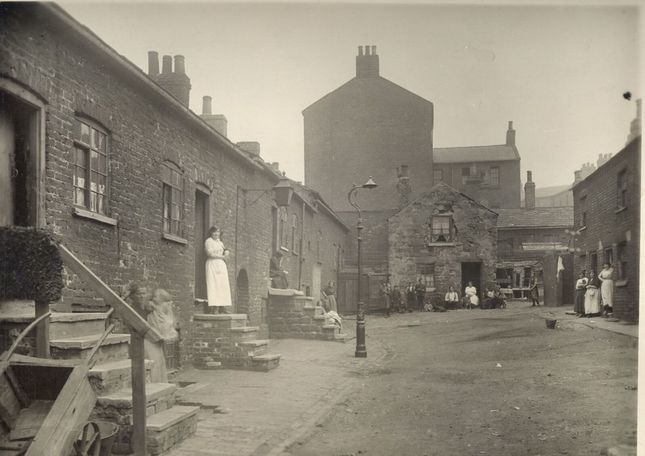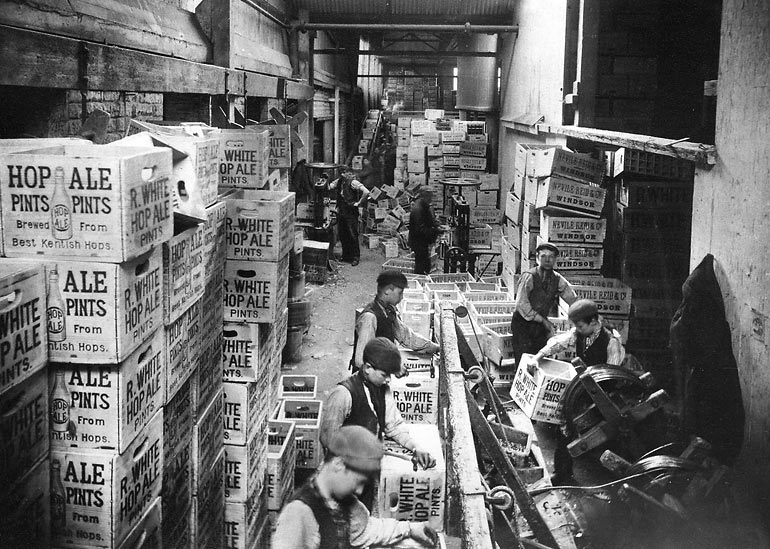Eee, what were tha' Mither?
David Bridgeman-Sutton listens hard to some of those good old, er, Sunday School Song words.
David Bridgeman-Sutton listens hard to some of those good old, er, Sunday School Song words.
The Alternative Hymn Book
or:
What was that again?
A century or so ago, Sunday strollers in any of the three cities called Worcester ~ respectively in England, Massachusetts and South Africa ~ would have heard young voices raised in song; so, too, would those taking the air in almost any other English-speaking city. The Sunday school movement was at its height and had adopted catchy tunes, both sacred and secular, for its simple, didactic hymns and choruses. Passers-by, would have recognised these tunes and probably thought they could remember the words, assisted here and there, perhaps, by a pom-pom-pom or a tiddley-um-tum-tum.
|
In this, some were grievously mistaken. Communists had opened their own schools in socially-deprived areas of industrial cities and used the methods and many of the same tunes as their Christian counterparts. The words were quite different.
Established thought in Australia was appalled when a copy of one of the song books came to its attention. The meaning of some of the Songs of the International Workers of the World doubtless escaped many of the youthful scholars; to the tune of Marching Through Georgia these lines had a certain ring:- |
“How the masters holler when they hear the dreadful sound
Of sabotage and direct action spread the world around :
They are getting ready to vamoose with ears close to the ground,
From One Big Industrial Union.”
Of sabotage and direct action spread the world around :
They are getting ready to vamoose with ears close to the ground,
From One Big Industrial Union.”
Pity the poor child amused by the image of the boss departing at speed with (both?) ears to the ground; politicians seem rarely blessed with humour.
Another American melody borrowed for the book was The Star-Spangled Banner:
Another American melody borrowed for the book was The Star-Spangled Banner:
“Long, long has the spoil of labour and toil
Been wrung from the workers by parasite classes:
While Poverty gaunt, Desolation and Want
Have dwelt in the boys of earth’s toiling masses.
Through bloodshed and tears our day-star appears
Industrial Union, the wage-slave now cheers.”
Been wrung from the workers by parasite classes:
While Poverty gaunt, Desolation and Want
Have dwelt in the boys of earth’s toiling masses.
Through bloodshed and tears our day-star appears
Industrial Union, the wage-slave now cheers.”
Some tunes seem to have been taken directly from hymnals: Revised words to “Take it to the Lord in Prayer” (note: Dr Ron Newton points out that "Take it to the Lord in Prayer" is the refrain of the hymn "What a Friend we have in Jesus" ) include:
“Stiffen up, you orn’ry duffer -
And dump the bosses off your back.”
And dump the bosses off your back.”
John Buchan features a group of boys from Glasgow’s most deprived district, the Gorbals, in his 1921 novel “Huntingtower”. One, Wee Jaikie, attended a Socialist Sunday School and occasionally sings snatches from the songs learned there. Like the Australian version, his book uses the Scots air “Annie Laurie”, though with these words (Wee Jaikie returned to the original in the last couplet):
“The bourgeois brays are bonny,
To-roo-ra-roo-raloo,
But the Workers of the Worrld
Will gar them all look blue,
Will gar them all look blue
And droon them in the sea;
And for bonnie Annie Laurie
I’ll lay me doon and dee.”
To-roo-ra-roo-raloo,
But the Workers of the Worrld
Will gar them all look blue,
Will gar them all look blue
And droon them in the sea;
And for bonnie Annie Laurie
I’ll lay me doon and dee.”
A recurring image in the songs is that of the “Fat Man” — capital personified, usually shown in cartoons smoking a cigar and not infrequently wearing a top hat, even indoors. Another of Wee Jaikie’s ditties (melody unrecorded) urges his hearers to:
“Heed nae mair the Fat man’s lees,
Stap them doun his throat!”
Stap them doun his throat!”
Mystifyingly, he sings “to a hymn tune”:
“Class conscious we are and class-conscious wull be
Till our foot’s on the neck of the Bourjoyzee”.
“Class conscious we are and class-conscious wull be
Till our foot’s on the neck of the Bourjoyzee”.
Which hymn tune might that have been? “Hanover”, perhaps, if no one was too bothered about scansion? No more of the words of this stirring lyric were recorded. Wee Jaikie deserted the movement; unlike the church schools, the socialist variety had neither magic-lantern shows nor Christmas parties.
David Bridgeman-Sutton,
August 1, 2004
August 1, 2004
Credits:
Thanks to Barnsley Metropolitan Borough Council and its Archivist for permission to use figures 1 & 2.
Thanks to Barnsley Metropolitan Borough Council and its Archivist for permission to use figures 1 & 2.




